Graeme Thompson, a trained theatre archivist, found it very exciting when he discovered that Ken White, a former stalwart of the 16th Ave Theatre had correspondence with New Zealand playwright Bruce Mason and was a friend of his.
He found these in the papers that Ken White handed over to the theatre before he died.
Bruce Mason wrote 34 plays and influenced the cultural landscape of the country through his contribution to theatre. As Graeme says: 'Bruce Mason is regarded as the guy who kick-started New Zealand theatre.”
Graeme has been working on the 16th Ave Theatre archives for about six weeks, for six hours per week. This came about through a chance meeting between his wife and Jaine Kirtley from 16th Ave Theatre. He studied drama at the University of Otago with the Allen Hall Theatre, and his peers included Te Radar, and Duncan and Robert Sarkies. This gave him a love of theatre, and later he went on to be a trained archivist at Archives NZ. He was also on the NZ Theatre Trust Board, which encourages professional and amateur theatre to archive the records of their performances.
'It was tremendously exciting from a historical point of view,” says Graeme, 'and also as a former member of the New Zealand Theatre Archive Trust Board, for me to discover that Bruce Mason had written letters to Ken White in the 1950's in which he mentions he's working on his latest play and that it's called The Pohutakawa. This was before it was called The Pohutakawa Tree.”
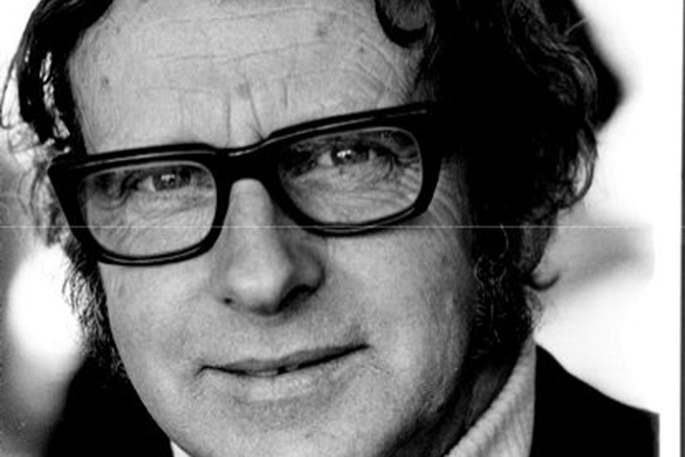 Bruce Mason.
Bruce Mason.
Bruce Mason's best-known play is The End of the Golden Weather, a classic made into a feature film directed by Ian Mune in 1991. The Pohutukawa Tree is another significant play, and was written during the 1950s and 1960s. Exploring Māori and Pākehā themes, it was Mason's first major success, with Mason using theatre to highlight social and political issues in New Zealand society.
Mason writes in one of his letters to Ken White - 'You told us of the Pohutakawa Tree, that it moved forward without tension. Perhaps what I feel about yours as a whole is that it jumps forward, and recoils, only to jump forward again. '
'Not only is it significant in that they were corresponding about the plays they were doing,” says Graeme, 'and talking about plays in New Zealand, but one actress wanted to play the female character in The Pohutakata Tree. But Bruce Mason said he didn't want anyone other than a Maori to play the Maori role.”
The Pohutakawa Tree is regarded as being one of the pioneering works of New Zealand theatre.
Ken White had produced a play on the West End in England called 'They called him Jonah” which was a play about the discovery of Adolf Hitler on a Pacific Island in the 1950s, as New Zealand was taking over the stewardship and governance of the island. The copy of this play, kept in the archives, has comments inserted by Bruce Mason.
Many years later, Graeme says, 16th Ave Theatre had a play written where Adolf Hitler was discovered living on the west coast of the South Island after World War II.
Bruce and Ken were great friends, and the first performance of The End of the Golden Weather happened here in Tauranga. Graeme states that the correspondence between the two is a particularly significant discovery of New Zealand theatre history.
Graeme has been creating templates for the 16th Ave Theatre volunteers to use and list materials, and is showing them how to archive the theatrical collection. This has been done with limited time, as he relocates this week to work as a records management adviser for the New Plymouth District Council.
'It's a tremendous treasure trove!” exclaims Graeme. 'What is even more exciting than just Ken Wright's paper, is that for each production, the theatre has kept posters, newspaper clippings, sometimes there's a script and photos. These go back to the 1920's and even further.”
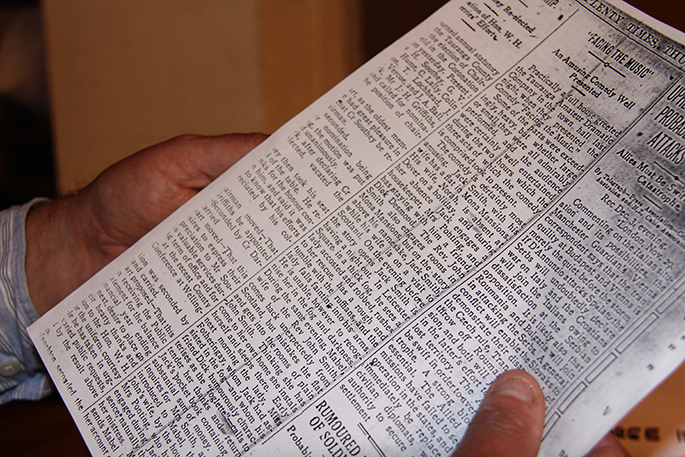 News Clipping from 1919 Production 'Facing the Music'
News Clipping from 1919 Production 'Facing the Music'
In 1919, the Tauranga Amateur Dramatic Company, the predecessor of 16th Ave Theatre, performed 'Facing the Music”. There's a clipping about it in the files.
Graeme discovered more delights during his archiving efforts.
'The theatre is also amazing in that it produced 'Amateur Theatre in New Zealand, a View from Tauranga” which is on video and DVD, and it is in 3 volumes,” says Graeme. 'They've published a list of all the plays since 1936 and who was in them. We've discovered by looking at photos of those productions that some people didn't make it into the book.”
One of the things that will happen once these archives are listed, arranged and described, is that Graeme will encourage the records to be taken to the Tauranga Library so they can be properly housed.
In the 1980's Ken White spent 3-4 years filming interviews all over New Zealand with people who had some connection to the 16th Ave Theatre in Tauranga. These three videos each 3 hours long are now stored in the archives. This record is quite a significant snapshot of an important part of the history of amateur theatre in New Zealand as Ken also interviewed others not directly involved in Tauranga.
'In my opinion, Tauranga's 16th Ave Theatre is one of the most professional amateur theatres I have ever seen,” says Graeme, 'with an amazing theatre and tradition going back to the 1930s. It has an amazing position in terms of the birth of New Zealand theatre producing New Zealand plays with Ken White and the contact they had with Bruce Mason. I remember when I came in I was just astounded with how good this was and think Tauranga people should know how exceptional it is.”
Records of press releases, photos, and theatre programmes were kept in a scrapbook from 1955 onwards, about the same time as the letters from Bruce Mason. 16th Ave Theatre has deliberately had a policy of keeping the archives.
'This is a significant piece of the social history of Tauranga and a very significant piece of the history of theatre in New Zealand,” says Graeme. 'It's fantastic."
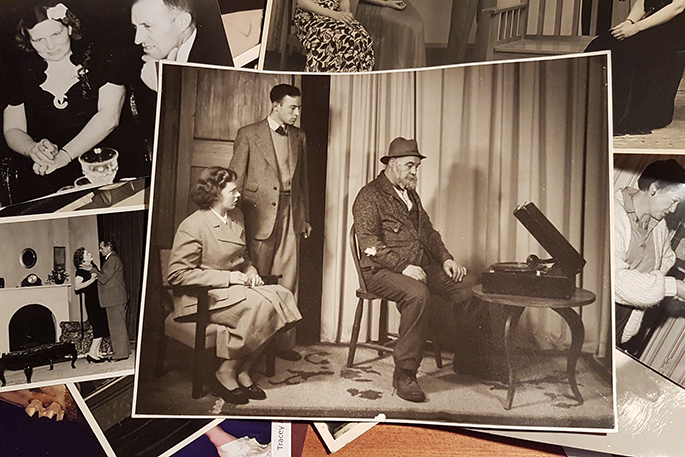
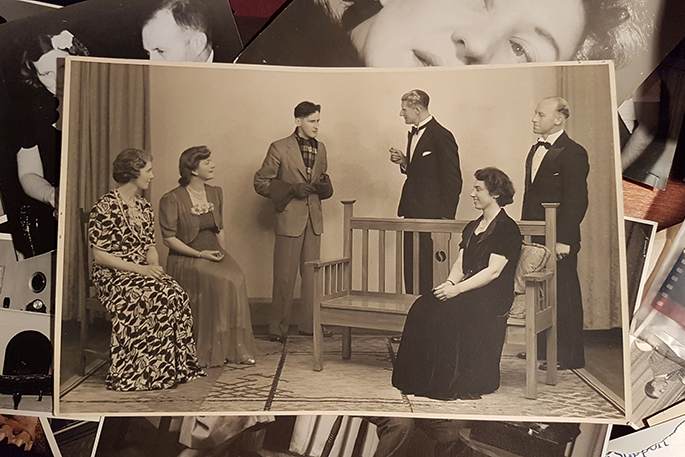

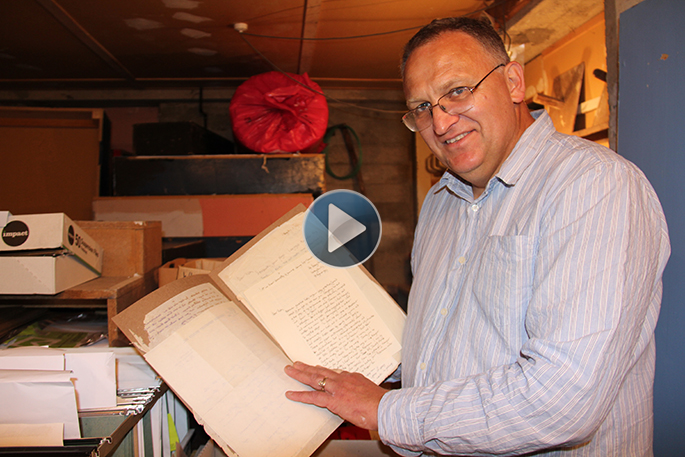

0 comments
Leave a Comment
You must be logged in to make a comment.